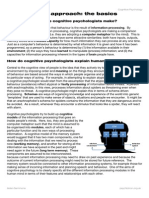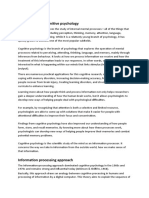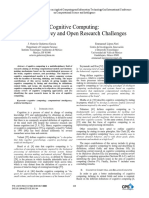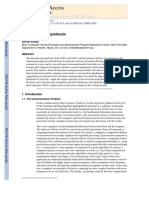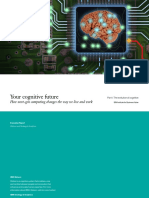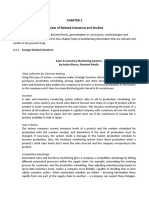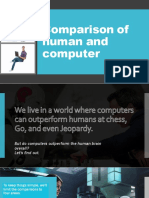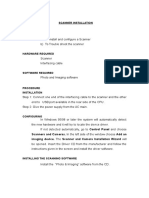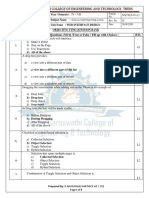0% found this document useful (0 votes)
44 views4 pagesCognitive Psychology Insights
Cognitive psychology is the study of how the human mind works through scientific methods. It examines how stimuli are processed and related to behavior. Common topics studied include attention, memory, problem-solving, language, perception, and thinking. This document discusses four salient topics for cognitive psychologists: memory loss, depression, eyewitness testimony, and artificial intelligence. It provides details on studies examining each topic, such as using brain stimulation to reverse memory loss and examining cognitive differences in those with depression.
Uploaded by
aloysiusCopyright
© © All Rights Reserved
We take content rights seriously. If you suspect this is your content, claim it here.
Available Formats
Download as DOC, PDF, TXT or read online on Scribd
0% found this document useful (0 votes)
44 views4 pagesCognitive Psychology Insights
Cognitive psychology is the study of how the human mind works through scientific methods. It examines how stimuli are processed and related to behavior. Common topics studied include attention, memory, problem-solving, language, perception, and thinking. This document discusses four salient topics for cognitive psychologists: memory loss, depression, eyewitness testimony, and artificial intelligence. It provides details on studies examining each topic, such as using brain stimulation to reverse memory loss and examining cognitive differences in those with depression.
Uploaded by
aloysiusCopyright
© © All Rights Reserved
We take content rights seriously. If you suspect this is your content, claim it here.
Available Formats
Download as DOC, PDF, TXT or read online on Scribd
/ 4





